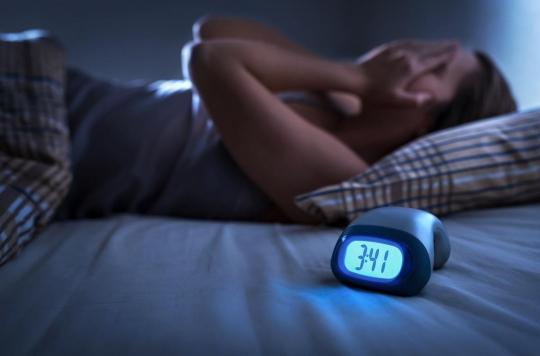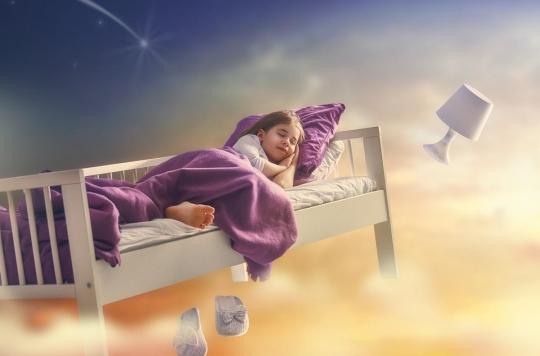People with migraines have poorer quality sleep.

- Adults with chronic rather than episodic migraines have worse sleep.
- Children with migraines also took longer to fall asleep, had less total sleep time and more time awake.
Recently, researchers found a strong association between migraines and sleep disorders in children. In a new meta-analysis, British researchers from King’s College from London reported that migraine patients have more fragile REM sleep than others. They published their results on September 22 in the journal neurology.
Better understand the relationship between migraines and sleep disorders
The researchers wanted to better understand the relationship between migraines and sleep disorders. “We wanted to analyze recent research to get a clearer picture of how migraines affect people’s sleep patterns and the severity of their headaches.revealed Jan Hoffman, lead author of the study. This way, clinicians can better support migraine sufferers and offer more effective sleep treatments..” For this, he and his team of scientists examined 32 studies involving both a population of children and adults.
Previously observed associations between sleep disturbances and migraines have been difficult for researchers to disentangle. Sleep disturbances can be both a trigger, a treatment or a symptom of migraines. To see more clearly about the quality of sleep of migraine patients, the study included more than 10,000 adults and children who had participated in previous studies. For this, they studied the participants’ responses to a questionnaire on the quality of their sleep.
REM sleep, a crucial moment
Adults with migraines performed worse than healthy participants on the quality of their sleep. This finding was more common in adults with chronic than episodic migraines. Many participants underwent overnight polysomnography, which records certain bodily functions during sleep that can help diagnose sleep disorders. These tests have shown that adults and children with migraines have a lower percentage of REM sleep than control groups. Children with migraines also took longer to fall asleep, had less total sleep time and more time awake.
REM sleep is a crucial time in the sleep cycle. It is in particular there that the thought and the memory are consolidated. It is characterized by more dreams, body movements and faster heart rate and breathing than in other stages of sleep.
No causal link
There are some limitations to the study. First of all, it does not establish a causal link between migraines and sleep disorders. Second, the studies included in the meta-analysis did not report whether migraine patients suffered from migraines during sleep itself. Additionally, six of them did not include an extra night for participants to adjust to the sleep lab, which may affect REM sleep. Finally, the authors did not fully account for potential mental health diagnoses or medication use, both of which could influence sleep.
Nevertheless, this research provides “a clearer understanding of migraines and how they affect sleep patterns”, says Jan Hoffman. Studies have shown a strong link between headaches and a bad night’s sleep. Previous research has reported reduced REM sleep the night before a migraine attack. They also highlighted the fact that a migraine symptom that worsened after REM sleep deprivation is cutaneous allodynia. It corresponds to the fact that when a person feels pain after touching their skin in a way that does not usually produce pain. This suggests a possible dysfunction in REM sleep processes that could cause migraines.

.













